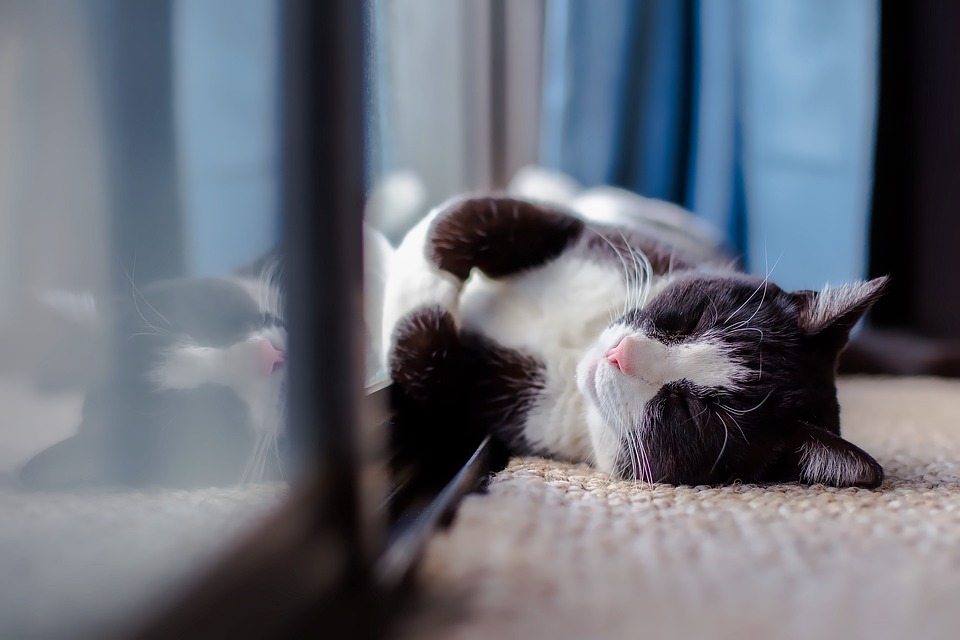Cats, like humans, can experience allergies that affect their eyes. Feline eye allergies can be uncomfortable for your furry friend, causing redness, itching, and excessive tearing. As a responsible cat owner, it’s essential to understand the causes, symptoms, and remedies for feline eye allergies. This article will provide you with all the necessary information to help your beloved feline companion find relief.
Understanding the root causes of feline eye allergies is crucial in managing and preventing them. Some common culprits include environmental allergens, food allergies, chemicals and irritants, and parasites. Environmental allergens such as pollen, dust mites, mold spores, and other airborne allergens can irritate your cat’s eyes. Certain ingredients in your cat’s diet, such as soy, wheat, or fish, may trigger an allergic reaction, including eye symptoms. Exposure to chemicals like cleaning products, cigarette smoke, or fragrances can also lead to eye allergies. Additionally, external parasites like fleas or mites can cause allergic reactions in cats, affecting their eyes.
Identifying the signs of feline eye allergies is essential for timely intervention. Keep an eye out for symptoms such as redness, watery eyes, squinting, itching, and swelling. If you notice any of these symptoms in your cat, it’s crucial to consult your veterinarian for a proper diagnosis and treatment plan.
While it’s important to consult your veterinarian, there are some remedies you can try at home to alleviate your cat’s eye allergies. Keeping the environment clean by regularly cleaning your cat’s bedding, vacuuming your home, and using air purifiers can minimize the presence of allergens. If food allergies are suspected, your veterinarian may recommend a hypoallergenic diet or an elimination diet to identify the specific allergen. Gently rinsing your cat’s eyes with a sterile saline solution can help flush out allergens and soothe irritation. It’s also important to keep your cat away from chemicals, smoke, and other irritants that may trigger allergic reactions. In some cases, your veterinarian may prescribe antihistamines, corticosteroids, or other medications to manage your cat’s eye allergies.
Here are some frequently asked questions about feline eye allergies:
**Q: Can feline eye allergies be cured?**
A: While feline eye allergies can’t be completely cured, they can be effectively managed with the right treatment plan and preventative measures.
**Q: Can I use over-the-counter eye drops for my cat’s eye allergies?**
A: It is strongly recommended to consult your veterinarian before using any over-the-counter eye drops for your cat. Certain human eye drops can be harmful to cats.
**Q: Can feline eye allergies be seasonal?**
A: Yes, just like human allergies, feline eye allergies can be seasonal, with symptoms worsening during specific times of the year, such as spring or fall.
**Q: Is it necessary to take my cat to the vet for eye allergies?**
A: Yes, it’s crucial to have your cat examined by a veterinarian to determine the underlying cause of the eye allergies and to receive appropriate treatment.
**Q: Can feline eye allergies be prevented?**
A: While some allergens are difficult to avoid, taking measures like keeping your cat’s environment clean, using hypoallergenic products, and ensuring a balanced diet can help prevent or minimize feline eye allergies.
In conclusion, feline eye allergies can be a source of discomfort for your beloved cat. By understanding the causes, identifying the symptoms, and implementing appropriate remedies, you can help alleviate your cat’s eye allergies and improve their overall well-being. Remember to consult your veterinarian for a comprehensive diagnosis and tailored treatment plan to ensure the best possible care for your feline friend.








